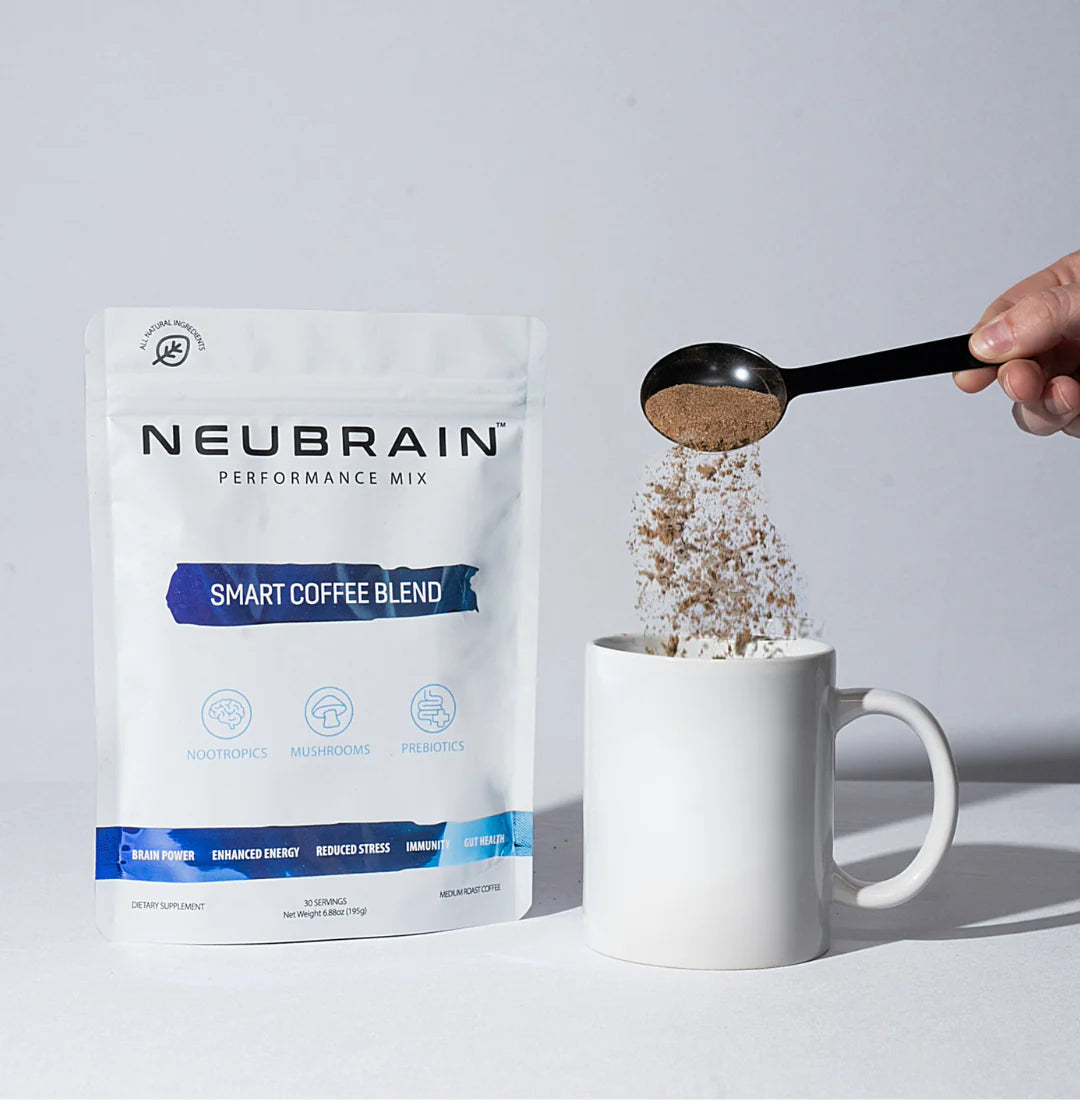In a world where staying focused and energized is key to success, many people turn to coffee or energy drinks as their go-to productivity enhancers. But there's a growing shift towards nootropics—natural or synthetic substances that improve cognitive function.
So, how does caffeine compare to nootropics when it comes to brain performance and productivity? Is your morning cup of coffee helping or hindering your long-term cognitive health? This article explores the pros, cons, and scientific facts about each, helping you make an informed choice.
What Is Caffeine and How Does It Work?
Caffeine is a central nervous system stimulant most commonly found in coffee, tea, and energy drinks. It works by blocking adenosine receptors in the brain—adenosine being a neurotransmitter that promotes sleep and relaxation. By blocking this receptor, caffeine increases neuronal activity and the release of other neurotransmitters such as dopamine and norepinephrine.
According to the U.S. Food and Drug Administration (FDA), caffeine is classified as a stimulant that can temporarily restore alertness and prevent drowsiness. It is the most widely consumed psychoactive substance in the world.
Source: FDA on Caffeine
What Are Nootropics?
Nootropics, sometimes called "smart drugs," are a category of supplements or substances that claim to improve cognitive function—particularly executive functions, memory, creativity, or motivation.
Unlike caffeine, nootropics work in a variety of ways: enhancing blood flow to the brain, improving neurotransmitter levels, reducing stress hormones, and supporting brain cell health. Popular nootropics include L-theanine, Alpha GPC, Lion's Mane mushroom, Bacopa Monnieri, and CognatiQ® (coffee fruit extract).
Some nootropics are naturally occurring, while others are synthetic. Importantly, many have been researched for their long-term effects on cognition and neurological health.
Benefits of Caffeine for Productivity
1. Increased Alertness and Reaction Time
Caffeine is known for improving short-term alertness and attention. A study published by the National Library of Medicine (NLM) showed that caffeine improves vigilance and reaction time, particularly during extended periods of wakefulness.
2. Temporary Mood Enhancement
It can stimulate dopamine production, which enhances mood temporarily.
3. Quick Energy Boost
Its fast-acting nature makes it effective when a quick energy spike is needed.
Drawbacks of Caffeine
1. Tolerance and Dependency
Over time, your body develops a tolerance, requiring higher doses for the same effect.
2. Energy Crash
After the initial high, users often experience a significant drop in energy—commonly referred to as the "crash."
3. Increased Anxiety and Heart Rate
Excess caffeine can lead to jitteriness, anxiety, and elevated heart rate. In high doses, it can negatively affect sleep and cardiovascular health.
Benefits of Nootropics
1. Sustained Mental Clarity
Unlike caffeine, nootropics like L-theanine and Alpha GPC promote long-term cognitive health. L-theanine, in particular, is known for promoting alpha brain waves—associated with relaxation and focus.
2. Reduced Stress and Anxiety
Many adaptogenic nootropics (e.g., Lion's Mane, Reishi) help regulate the body's stress response by reducing cortisol levels.
3. Neuroprotection and Brain Health
Some nootropics are linked to increased production of Brain-Derived Neurotrophic Factor (BDNF), essential for learning and memory.
Drawbacks of Nootropics
1. Slower Onset of Effects
Nootropics often take longer to feel compared to caffeine. Some may require consistent use over weeks to see full benefits.
2. Limited Research for Some Ingredients
While ingredients like L-theanine and Alpha GPC are well-researched, others like some herbal nootropics lack long-term human studies.
Can They Be Combined?
Yes! One of the most popular combinations is caffeine + L-theanine. L-theanine helps smooth the effects of caffeine by reducing jitters while enhancing focus. This combo is widely studied and often cited as a synergistic pair.
Conclusion: Which One Wins?
If you need immediate alertness, caffeine might do the job. But if you're aiming for long-term productivity, cognitive resilience, and fewer crashes, nootropics offer a more sustainable solution.
For optimal results, a combination of both—as found in smart mushroom coffee blends like Neubrain—can deliver the best of both worlds: clean energy, sharp focus, and cognitive protection.
Want to learn more?
Explore how Neubrain combines science-backed nootropics with real coffee and adaptogens to help you thrive, not just survive.








